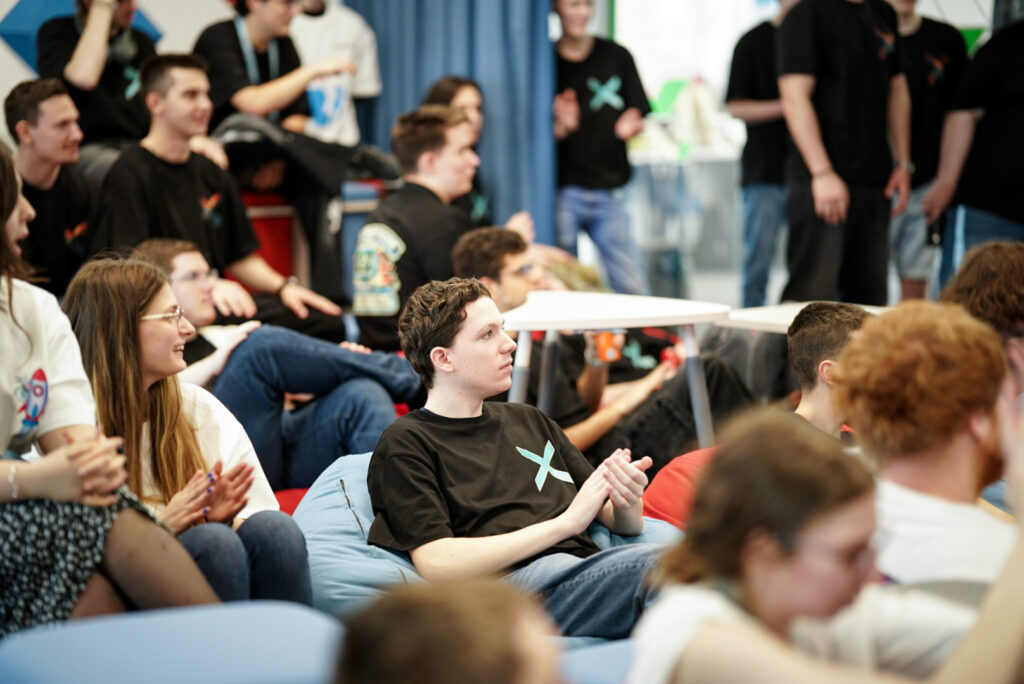The IT sphere continues to expand with each new day creating new areas and professions. The article will shed some light on what it is that a Magento developer has to do and what skills you would need to hone in order to master the profession.
Who is a Magento developer and what kind of platform is Magento?
— Well, in a nutshell, it’s a person who specializes in creating all kinds of e-shops with the help of the Magento platform. This CMS provides great tools for the development and customization of e-shop/blog functionality which enables the end-user to check the reviews or characteristics of a product, and order it.
In order to be able to work with Magento, you need to be able to think in a certain way. First, you need to know what exact functionality a website needs. Just selling products via a website is one thing. However, when you need to link virtual items on your website with physical items in your warehouse, that would call for a completely different approach to development.
– How to work with Magento?
– You need to look for ways of integrating the platform with specific software. Magento sends data to 3rd-party services and receives it from them in the same way. It’s also important to consider the server capabilities which you can rent from a hosting provider. You can’t deploy Magento on a cheap host and expect it to perform quickly. The platform does require certain resources for processing and storing data after all.
Usually, Amazon is preferred for projects. This platform makes it possible to scale up the computing capabilities of your server, increase the amount of memory, or just add one more server altogether to use it as a database, for example.
Magento is a well-structured system, so you’re less likely to make mistakes here as opposed to the cases when a developer is given full flexibility such as in PHP frameworks and various CMS systems (e.g. WordPress).
The clearly defined structure of Magento will help a beginner to form the right understanding of project development, which will come in handy in projects in the future. When you have mastered the platform enough, you’ll be able, in time, to not only change the appearance of e-shops, but also add customized functionality to target specific customers.
– As a Magento developer, what skills and knowledge do you need?
– It’s worth getting a hang of the main programming language for Magento, which is PHP. You should know the syntax quite well and understand object-oriented programming, array processing functions, as well as algorithms for working with data. On top of that, you should be good at MySQL databases and understand the working principles of ElasticSearch. This knowledge will help you customize the basic functionality of Magento by enabling you to create new modules and work with the existing ones.
If you want to understand the nuts and bolts of Magento, you should know what patterns there are, how exactly code gets generated, and how the client-browser makes requests to Magento itself.
Mind you, it’s not only about the backend. A Magento developer should know his way around the frontend as well, as these two website components constantly interact with one another. Besides, when cooperating with other frontend developers, you’ll be able to explain to them how to get and put files together in order for them to be correctly displayed on the website.
For efficient and good-looking layouts, you’ll need knowledge of HTML. If you mean to learn how to create big marketplaces, you should really start learning JavaScript right away. JavaScript skills will help you improve e-shops as you actively work or support them.
If you have to deal with calculations and data processing, there is no way to avoid math here. Besides, this knowledge really boosts your mental capabilities and teaches you to think in algorithms.
– What are the common tasks for a Magento Developer??
– One of the main tasks is to customize Magento, which is developing functionality for the specific requirements of a project. When a team is developing or using a ready-made e-shop, there might come a need for integrations with various 3rd-party services. For example, there is a brick-and-mortar store, a warehouse, and some software that keeps track of goods. When developing an e-shop, you will probably have to integrate the warehouse software with Magento. This way it becomes possible to set up a process of updating goods both in the warehouse and on the website. You also should also create a lot of extensions—Magento modules that extend the standard “out-of-the-box” functionality.
– What kind of degree do you need to become a Magento dev?
– Based on my experience, I can say that a technical degree can really serve as a soft start for mastering this profession. However, if you are strongly motivated and keen on technology and programming, there is nothing that will stop you on your path.
I became a member of the NIX team in my third year in university. Simply put, as a technician-programmer. Back in the day, I decided to try my hand at a qualifier for a PHP training program. This was how I first got acquainted with Magento 2. Having finished studying at NIX, I became a part of the team and got an opportunity to prove the newly acquired knowledge on a real project on the very first day. First, I would get some simple stuff, such as moving blocks around a website and tracking and fixing bugs on the back-end. The first commercial experience is a scary thing for a student, although it is very cool in terms of professional development. I looked up to my mentor and consulted with him, always knowing that I wanted to become a professional like him one day.
– Which personal qualities will you need?
– There is no doubt, you must be patient. You’ll have to dedicate a lot of time to self-teaching and constant practicing. There is room for growth in this area. You just need to want it. Open-mindedness, good communication skills, taking initiative, and being helpful—all these things are vital for effective work in a team.
In order to achieve great results, a team member needs to be motivated and sincerely like working on their project. Only in this way can they develop an amazing functionality for any e-shop.
– Recommendations to those interested in developing in Magento
– Watching a “How to master Magento in a week” video on Youtube is not enough to produce results of the similar quality produced by other members of your team on your project. This kind of knowledge is rather superficial. Try to stick to the following plan: watch videos, read books or blogs, consolidate this knowledge in practice, and revise everything you have learned on a regular basis. When you have a free minute, try to use it to learn something new. Log onto YouTube and watch your favorite topical channels. There you learn about new technologies and approaches, which you then will try to apply to your new projects.
As a kind of practice, you can try developing your own pet project, then create a repository where you’ll be uploading the results of your work. This way, by studying and honing your skills all the time, you can reach the level of a full-stack specialist and become a developer of a very broad scope.
Also, try to be active and dedicated. Don’t be afraid to admit you can’t do something. Ask more experienced specialists for help. However, first, do try to find a solution yourself, as it develops logical thinking. Challenge yourself! If, after a number of tries, you understand that you are at a dead end, just say it to your team members. Together you’ll be able to find a solution to any problem.






